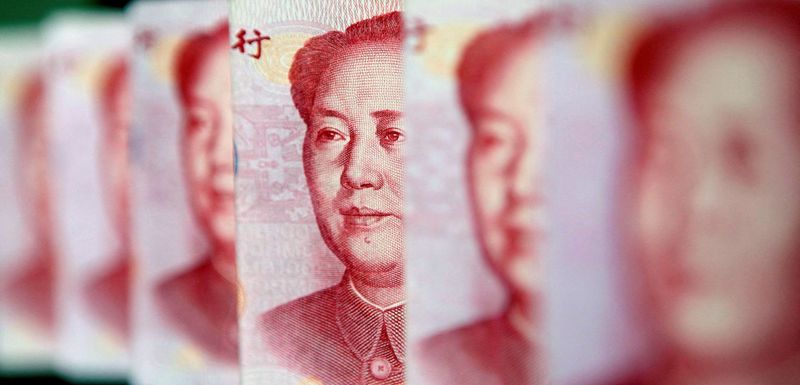SHANGHAI (Reuters) - China is expected to cut benchmark lending rates at its monthly fixing on Friday, a second reduction this year, a Reuters survey showed, as it seeks to prop up credit demand to cushion an economic slowdown due to COVID-19 disruptions.
The loan prime rate (LPR), which banks normally charges their best clients, is set on the 20th of each month, when 18 designated commercial banks submit their proposed rates to the People's Bank of China.
Eighteen traders and analysts, or 64% of 28 participants, in the Reuters snap poll predicted a reduction in either the one-year Loan Prime Rate (LPR) or the five-year tenor.
Among them, 12 respondents forecast a marginal cut of 5 basis points to both tenors.
The remaining 10 participants believe the LPR will remain unchanged for the fourth straight month, in line with a steady borrowing cost of the central bank's medium-term lending facility (MLF) loans, which now serves as a guidance to the lending benchmark.
Most new and outstanding loans in China are based on the one-year LPR, which currently stands at 3.70%. The five-year rate, now at 4.60%, influences the pricing of mortgages.
"We expect China to roll out more supports in the coming sessions," said Tommy Xie, head of Greater China research at OCBC Bank.
"Although PBOC kept its MLF rate unchanged in May, we expect China to lower its LPR fixing this week due to falling banks' funding costs," he said, noting a reduction to banks' deposit rate ceiling in April should have effectively lowered lenders' liability cost.
A slew of data including credit lending, industrial output and retail sales showed COVID-related stringent measures and mobility restrictions have taken a heavy toll on the broad economy.

New bank lending hit the lowest in nearly 4-1/2 years last month and missed market forecasts by a big margin.
Various senior officials recently pledged to roll out more stimulus measures to prop up the economy. On Wednesday, Premier Li Keqiang was quoted by state media as saying that China has policy room to cope with challenges, as the downward pressure on China's economy increases.